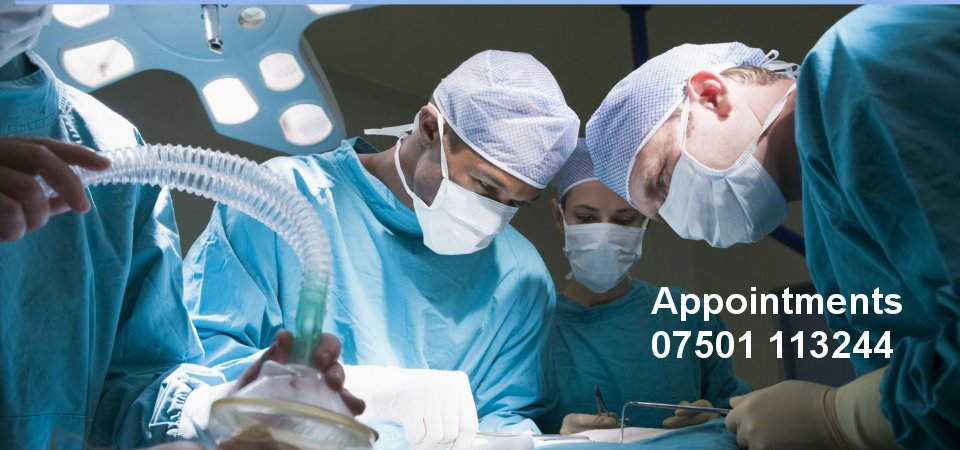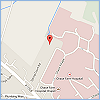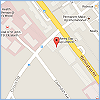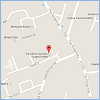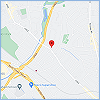Stephen Warren’s patients are typically referred with the following symptoms or complaints, or for consultation regarding the following procedures or operations, which he will only perform if they are necessary for your wellbeing.
If your condition is not listed below but you think that Stephen Warren can still help you please contact his Private Office for clarification
His usual patients are referred with:
Groin, umbilical and incisional hernias
- Any hernias or bulges of the abdominal wall will be assessed to see if you may require surgery – ideally keyhole laparoscopic surgery eg. groin or inguinal hernias (click here for information sheet), hernias arising from the bellybutton (click here for information sheet) or hernias within the site of a previous operation – incisional hernias (click here for information sheet)
Gallstones, pancreatitis and jaundice
- Any conditions relating to gallstones whether they are in the gallbladder or have moved into the bile ducts to cause problems such as pancreatitis (a severe inflammation of the pancreas gland from gallstone blockage of the pancreatic duct), yellow jaundice or pain, or perhaps just abnormal liver blood tests (LFTs – liver function tests). For information regarding gallstones and two port (only) laparoscopic surgery, please click here for information sheet.
Bowel cancers and screening
- Whilst the vast majority of patients do not have bowel cancers, alterations in bowel function and bleeding are always worrying to all people who rightly visit for a specialist consultation. If you are unfortunately diagnosed with a bowel cancer, then Mr Warren works within a Multi-Disciplinary Team (MDT for colorectal cancer) of healthcare professionals to ensure that you have a personalised treatment plan in order to best try to achieve a cure, which is possible with most patients. Of course if surgery forms part of your treatment plan, then Mr Warren would perform your colorectal cancer removal laparoscopically. Additionally, Mr Warren set up a private faecal occult blood (FOB) screening service prior to the UK National FOB Screening in 2007, and this is still available to those patients outside of National FOB age ranges (currently extended 60-74 years)
Rectal bleeding and piles
- Stephen Warren is pleased to see anyone who has noticed rectal bleeding as this is always abnormal and should be reported to a doctor, and this is the focus of many media campaigns. Whilst most rectal bleeding is innocent, patients must not assume this and ignore this important symptom. At private consultation obviously Mr Warren will need to examine your bottom which may seem embarrassing, but this is done in a very sensitive way, is very quick and not particularly uncomfortable, and Mr Warren has done this many times every day for the last 28 years! This is necessary to make a proper diagnosis and treatment plan (please don’t let embarrassment put you off coming for specialist consultation), and if you do have haemorrhoids (or piles) then often these can be treated without need of an operation. Even if you are one of the few who does need a planned haemorrhoid operation, Mr Warren will guide you to the most suitable operation for you (there are many available each with pros and cons) and performs the HALO (Haemorrhoidal Arterial Ligation Operation) procedure.
Change in bowel habit, diarrhoea and constipation
- A change in bowel habit away from your normal pattern for no identifiable reason (eg. a change in diet or some medications) needs investigating. The commonest cause is still an irritable bowel and Steve Warren performed his higher MS thesis surgical research upon this very subject and will be pleased to help you if this proves to be your diagnosis. Most change in bowel habit will require a colonoscopy or CT pneumocolon (virtual colonoscopy – see colonoscopy information sheet) and Mr Warren has performed many thousands of these since his first in 1989.
Abdominal and pelvic pain, irritable bowel syndrome
- Abdominal and pelvic pain is what all general surgeons see everyday of their career and as Mr Warren is a senior consultant surgeon now, he will be happy to give you the benefit of his gradually acquired experience to help diagnose and treat this debilitating problem. He works jointly alongside excellent gynaecological colleagues where there is female pelvic pain, sometimes even jointly operating if necessary. Bloating and abdominal pain might be from an irritable bowel, of which Steve Warren has great experience (as above), and treats all of the common causes of pain (gallstones, pancreatitis, ulcers, bowel obstructions of all causes, hernias, appendicitis, diverticulitis and it’s complications, severe constipation etc)
For the investigation of anaemia, positive blood in stool tests (FOBs)
- All patients with an unexpected finding of anaemia or who have been found to have microscopic levels of blood in their stool (positive faecal occult blood FOB tests) where you would not be able to see the blood, need investigation and not just to take iron tablets which obviously mask the cause of anaemia. Although only a small proportion will have a bowel cancer, a larger number (approximately 35%) will have a ‘pre-cancerous’ polyp which can be removed at colonoscopy before progressing. Mr Warren set up a private FOB testing service prior to the introduction of this as a National test (see media publications).
Stomach acid problems, indigestion and ulcers
- Indigestion and heartburn can easily be treated once diagnosed and usually result from an overproduction of acid causing gastritis (inflammation of stomach lining with indigestion) and if untreated can cause peptic ulceration (stomach and duodenal ulcers – stress, smoking, helicobacter pylorii infection, alcohol and anti-inflammatory painkillers). Sometimes heartburn from overproduction of acid (stomach and bile acids) can occur with a hiatus hernia and even gallstones. Most stomach problems will require investigation with a gastroscopy (see below)
For colonoscopy or gastroscopy, family/personal history of polyps
- Many of the gastro-intestinal problems above will need investigations with a flexible telescopic examination of your bowel, either diagnostic to find the cause of your symptoms and take biopsies for microscopic examination, or therapeutic where polyps can be removed, bleeding blood vessels Argon beam treated or piles banded/injected. The thought of having a telescope passed into your stomach or around your bowel can be a daunting prospect but I can assure you that you are fully sedated and the vast majority of patients go to sleep and remember nothing of the test. However, as a result of the sedation you will not be able to drive home afterwards, and for colonoscopies you will need to take ‘bowel preparation’ to cleanse the bowel for vision during the test (see colonoscopy information). For gastroscopy, in addition to the sedation, the back of your throat and gullet will be made numb with a local anaesthetic spray to avoid any gagging but again you will be fully sedated. Occasionally patients may require both gastroscopy and colonoscopy and these can both be done at the same time under sedation.
Emergencies: appendicitis, abscesses, diverticulitis, bowel obstruction and abdominal pain
- As an experienced senior consultant surgeon Mr Warren will see you urgently in one of his many clinics (usually the same day – sometimes the GP will call Mr Warren directly or ask you to call or his office urgently), or transfer your care from an NHS hospital (but please note that hospital transfers of under 16 year olds cannot occur unless there is is a Paediatric nurse specialist in the private hospital). Sometimes these emergencies can be managed as an outpatient, but often require admission once pre-authorisation has been granted from your health insurance company. If you need an operation then where at all possible, Mr Warren will try to treat this with keyhole laparoscopic surgery.
Anal and rectal pain, prolapse, fistulas, fissures and painful piles
- As part of his area of specialism, Stephen Warren trained as a coloproctologist (colorectal surgeon which covers anal conditions). Because there is a rich blood and nerve supply to the anal canal, then ano-rectal problems such as prolapsed piles, perianal haematomas (clotted external piles), anal fissures (tears of the anal canal lining info sheet), abscesses and anal fistulas (tunnels between bowel and skin leading to abscesses), anal cancers and other conditions, all tend to result in severe anal pain and bleeding. Some may require surgery but some can be treated in outpatients depending on the diagnosis which Mr Warren will make with his long coloproctological experience since 1988.
Pilonidal sinus and abscesses
- Ingrowing and ‘burrowing’ loose hairs cause an infected collection of pus and blood discharging tunnels (which lead down to a chronically infected ‘nest’ of hairs under the skin, usually at the base of the spine between the bottom cheeks termed a pilonidal abscess or sinus (tunnel). Depending on how bad the condition is, surgical removal of the hairs and sinuses can help or sometimes outpatient treatment is preferred since surgical recovery can be lengthy and the condition can be recurrent. Mr Warren will advise you according to the severity of your case.
Laparoscopic treatment of diverticulitis, colovesical fistulas
- Diverticulosis is the outpouching of the inner lining of your colon through the muscle layer rather like lots of tiny little hernias, particularly affecting the sigmoid colon in the lower left-hand side of your abdomen. The majority of 50+ year olds in the Western world have this largely as a result of our diet. For most it causes absolutely no problems, but occasionally these outpouchings can become infected – diverticulitis. This is painful and sometimes requires admission for intravenous antibiotic treatment and analgesia. Very occasionally diverticulitis can lead on to abscesses by the side of the bowel if a diverticulum outpouching perforates with a peritonitis (infection of the abdominal cavity), and rarely forms a tunnel (fistula) to other parts of the bowel, the bladder (colovesical fistula), the vagina or even skin. Occasionally the inflamed segment can cause a bowel obstruction, and all of these complications require investigation to ensure the inflamed lump is truly diverticulitis and nothing more worrisome or Crohn’s disease (see below). Many of the complications of diverticulosis will need surgery – occasionally urgently, and always Mr Warren would try to perform this laparoscopically.
Laparoscopic treatment of complicated Crohn’s disease
- Crohn’s disease is a full thickness inflammation of the wall of the bowel which commonly affects younger adults (20s to 30s) and affects the last part of the small bowel (the terminal ileum in the lower right-hand side of the abdomen) but can affect any part of the gastrointestinal system. It is mainly treated by medical gastroenterologists with anti-inflammatories and immune suppression medication but can occasionally become ‘complicated’ (bowel obstruction with pain, abscesses between bowel loops, tunnels – fistulas – to bowel, bladder, vagina, skin/anal region) and beyond medical treatment, necessitating laparoscopic surgical removal, in which Stephen Warren specialises, usually after referral from your gastroenterologist.
Laparoscopic treatment of complicated colitis
- Slightly similar to Crohn’s disease, ulcerative colitis (UC) is inflammation of the bowel but only the lining of the bowel, and only the colon and rectum. Again it is treated medically mainly, but occasionally an acute flare-up with very watery and bloody stools can be beyond medical tablet/intravenous treatment and requires removal of bowel segments or the whole colon rarely which Steve Warren performs as a semi-emergency laparoscopically in liaison with medical gastroenterologists.
Colostomy and ileostomy problems
- Whenever colorectal surgeons operate on the bowel usually as an emergency (bowel perforations, severe UC, complicated diverticulitis etc) and for some elective rectal and anal cancer treatments, there is the possibility of a colostomy (the colon brought to the surface of the skin to empty into a bag attached to the skin around the stoma opening) or ileostomy (where the small bowel is brought out as a stoma opening into a bag), though we try to avoid stomas where at all possible. Occasionally stoma patients may have problems relating to the stoma – high output, hernias by the side of the stoma under the skin (parastomal hernias), the stoma narrowing down (stenosis) or prolapsing out/retracting inwards, blockages – some of which will require revision of the stoma, reversal of the stoma back to restore bowel continuity again, or sometimes outpatient treatments. Usually this is done in collaboration with the specialist nurse stomatherapist. Steve Warren is President of the North London Ileostomy Association.
Anal pain and bleeding in children (no other paediatric surgical conditions)
- As Stephen Warren has not had formal Paediatric General Surgical training, he limits his paediatric practice to colorectal problems – anal pain from abscesses and fissures (painful splits/tears of the anal canal) and rectal bleeding, and emergencies – abdominal pain and appendicitis (though please note that children cannot be transferred to private hospitals which do not have paediatric nurse/anaesthetic back-up). Mr Warren works in liaison with Paediatricians for these referrals usually.
